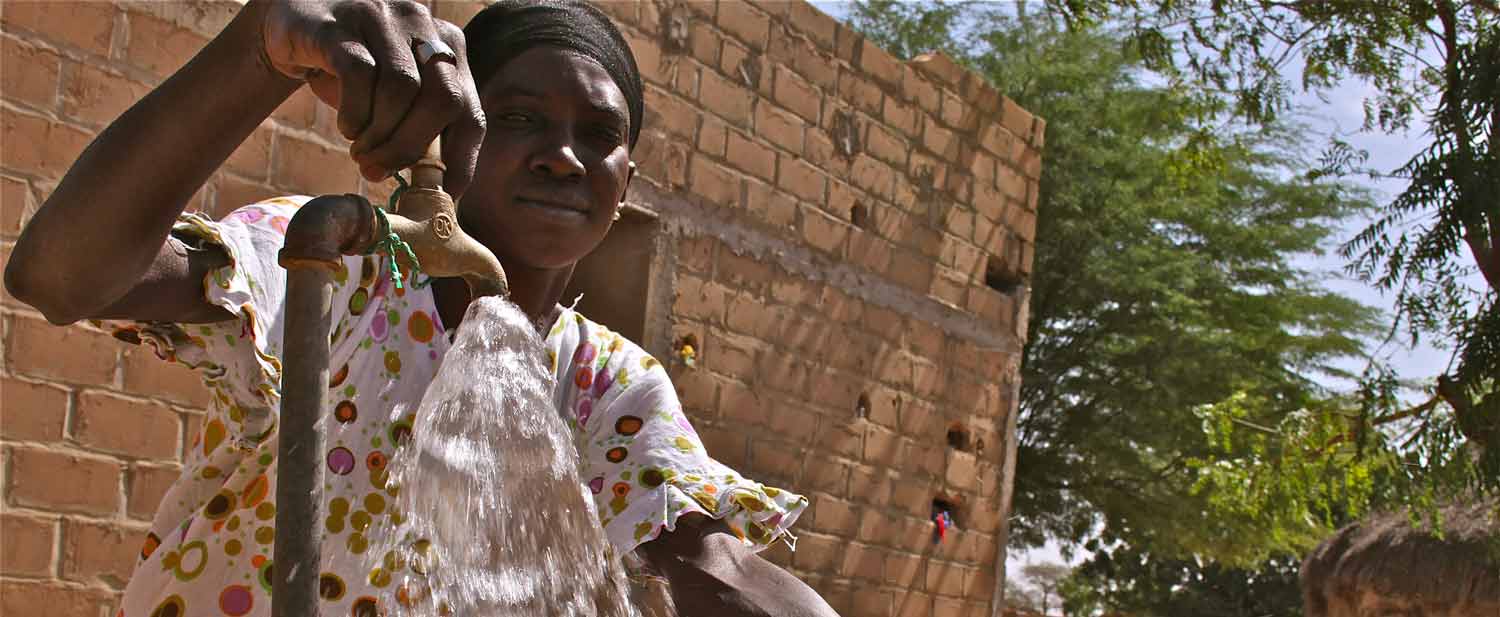

Taps installed in the Louga region, thanks to a project supported by the African Development Bank, now give people permanent access to drinking water, which previously required more than five hours a day to collect.
Launched in Senegal in 2014, the Water and Sanitation Sector Project ends this December 2024. With $15 million in funding from the African Development Fund, the African Development Bank Group’s concessional window and the Rural Water Supply & Sanitation Initiative, the project has helped improve access to drinking water and sanitation for people in the rural areas of Louga, Kaffrine, and Tambacounda and in the cities of Dakar and Ziguinchor.
In its Implementation Progress and Results Report on the project, published 30 January 2024, the African Development Bank highlighted that access to drinking water has been strengthened for the long term in all three regions. Now, at least 137,000 people have sustainable access to drinking water and 131,000 people have access to improved sanitation services. Some 126,000 people living in Dakar and Ziguinchor now have access to drinking water connections and sanitation services.
The prevalence of malaria has dropped 1 percentage point from 3 to 2 percent, targeting 1.5 percent. The rate of diarrhoeal diseases has dropped to 3 percent, compared with 4.8 percent at the start of the project. The goal is to reduce it to 2.1 percent.
The project has made it possible to develop several pieces of infrastructure. These include contributing to the construction of a water pumping station in Dakar and another in Ziguinchor. Some 17,000 family latrines have been built in both the cities and the regions, along with 85 public latrines, 20 boreholes and 20 drinking water supplies. The project has helped create 500 permanent jobs.
Bocar Cissé, project head for the African Development Bank, discusses current project impacts before its planned completion next December.
1- Thousands of people now have access to drinking water and sanitation services in two cities and three rural areas of Senegal thanks to the Water and Sanitation Sector Project. Is the original aim within reach?
The original aim is certainly within reach. In terms of the drinking water supply and sanitation project aspects in the three areas and the city of Dakar, it has largely reached or even exceeded its goals. Conversely, for sanitation in the city of Ziguinchor, work package 1 on wastewater networks and pumping stations is 100 percent complete but work package 2 on building the wastewater treatment plant is unfinished. The project suffered from the late provision of national counterpart funding and the failure of the first commissioned contractor to carry out the construction. A new call for tender was launched in 2022 and the contract was awarded to another company. These activities will be completed before the project ends.
2- The project has produced interesting results in terms of combating malaria and diarrhoeal diseases. Is the aim to end malaria in these areas?
We dream of a world free from malaria. For this project, we envisage a 50 percent reduction in the numbers of malaria cases in these areas, where its prevalence was 9 percent. We should see a reduction by half in the prevalence of the other water-borne diseases — typhoid fever and simple diarrhoea.
3- What is the initial feedback from the beneficiary populations?
In general, the beneficiaries are very satisfied, especially in rural areas. I remember one woman whom we met in Liger, in the Louga region, who explained how happy she was that her village now had a tap, where before the project, she and her daughters would take turns spending five hours a day or more collecting water. Today, she said, her daughters can invest that saved time in their studies and she can spend it on income-generating activities.


